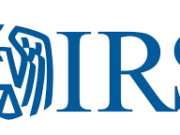On April 9th, CCP Chairman Bradley A. Smith testified before the Senate Judiciary Committee Subcommittee on Crime and Terrorism on campaign finance issues. (Watch video here)
For many reasons, enforcing campaign finance law is a highly complex issue. Most importantly, campaign finance law must be carefully crafted in order to avoid infringing on First Amendment rights. Unfortunately, too often these laws have not been carefully written, and when such laws are combined with criminal penalties, they provide a breathtakingly powerful tool for elected officials and government employees to use against political opponents.
Once again, self-interested politicians are on the warpath, arguing with little evidence or on the basis of minor and exceptional incidents that massive violations are taking place that threaten our democracy, and that the problem could be resolved if only we had more “vigorous” enforcement. In particular, there has been a noted desire to police campaign finance law through regulatory bodies without expertise in campaign finance, including the IRS, the FCC, and the SEC, in addition to the Federal Election Commission. Much of this concern about enforcement stems from a desire to disclose donors to alleged “dark money” groups. Before explaining the numerous issues inherent in the IRS and other regulatory bodies enforcing campaign finance law, I think it is first necessary to consider the nature and extent of this much overblown and sensationalized theme of “dark money” in American politics.














